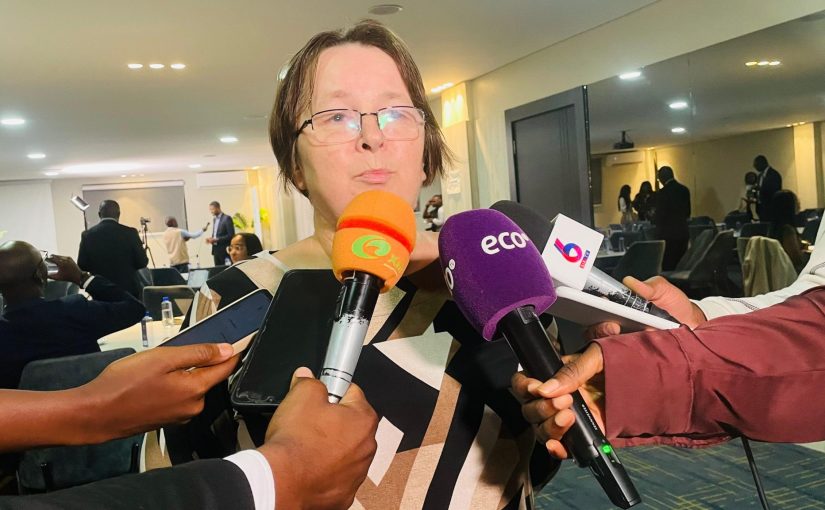Mozambique: Pioneer of biodiversity conservation Roberto Zolho passes away
Mozambique: Four licenses for reducing carbon emissions issued

Photo: AIM
The Mozambican government has so far issued four licenses for projects aimed at reducing carbon emissions as part of the national plan to strengthen climate action and energy transition.
Reducing carbon emissions involves decreasing the amount of carbon dioxide (CO2) released into the atmosphere through actions such as using renewable energy, improving energy efficiency, and adopting sustainable practices in daily life, both individually and in industries.
According to Jadwiga Massinga, National Director of Climate Change at the Ministry of Agriculture, who was speaking to reporters on Wednesday, in Maputo, at a meeting promoted by the country’s Renewable Energy Association (AMER), under the motto “Carbon Markets as a Strategic Tool for Climate Action in Mozambique”, the projects in question were approved in the southern provinces of Gaza and Inhambane, and the central provinces of Manica and Zambézia.
“We have already issued four licenses for projects aimed at reducing emissions resulting from deforestation. The initiatives are also aimed at improving family incomes, reducing dependence on natural resources, and strengthening forest protection, particularly mangrove forests”, she said.
Massinga explained that one of the projects focuses directly on the conservation of mangrove forests, an essential ecosystem for mitigating the impacts of climate change, as it acts as a natural barrier against strong winds and saline intrusion, with positive effects on local agriculture.
According to Massinga, a public consultation is currently underway regarding the regulation of the carbon market, an instrument that will establish the procedures for issuing licenses and allow the country to export carbon credits.
“This process is known as ‘corresponding adjustments’, within the framework of climate change, through which the country can grant a certain amount of carbon credits to companies or even other States to integrate into their Nationally Determined Contributions (NDCs)”, she said.
Massinga believes that the adoption of electric vehicles, the expansion of improved stoves, and the reduction in biomass consumption are fundamental measures to decrease carbon dioxide emissions.
“If we introduce more efficient transport systems, such as electric cars, we can significantly reduce emissions. Similarly, with the use of improved stoves, we reduce the need for charcoal and, consequently, the felling of trees,” she said.
For her part, the Executive Director of AMER, Helena Macuni, said the organization is commitment to supporting the Government in achieving the goal of universal access to energy.
“We have maintained partnerships with the government for the Biennial Off-Grid Energy Forum, aiming to support the strategic plan and ensure the achievement of the energy access goal in Mozambique. Within the framework of this Forum, three working groups were created, one of which is dedicated to climate issues and improved cooking solutions,” she said.
Macuni added that there is a need to strengthen institutional coordination and the involvement of the private sector, in order to position Mozambique as a leading player in carbon markets, both regionally and internationally.












Leave a Reply
Be the First to Comment!
You must be logged in to post a comment.
You must be logged in to post a comment.